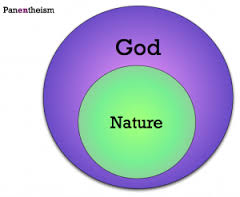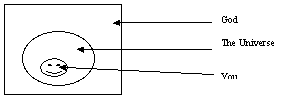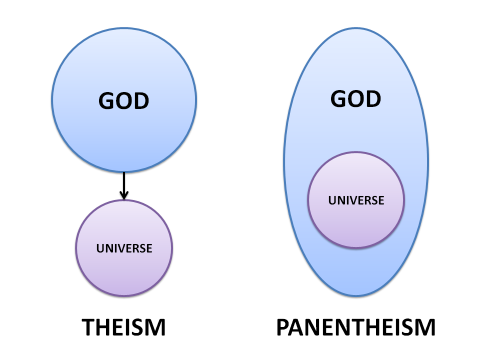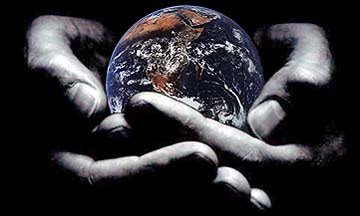- Jan 25, 2009
- 19,765
- 1,428
- Faith
- Oriental Orthodox
- Marital Status
- Private
- Politics
- US-Others
In many respects, it's really a matter of noting whether all of the Holy Trinity is involved in the Incarnation in order for it to be valid - or if all parts of the Trinity (which ALWAYS have communion with each one another) are all involved on the same level at all times. And with the Incarnation, it was not an illusion -My understanding is that the major NT Christological texts see Jesus as the way God becomes present with us. God was in Christ reconciling the world. So it seems to me that whatever your philosophical terms (and I'm not particularly happy with the traditional ones) it needs to see God as being present through the human being in such a way that it is actually God acting.
.

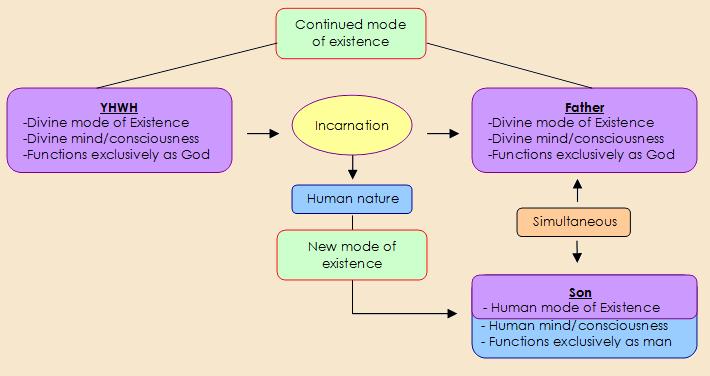
I appreciate how it was stated here (for brief excerpt)...more shared there on how Nestorius had changes in language due to the changes he perceived in what others were saying:
Nestorius and the Antiochene tradition understood the term hypostasis from an Aristototelian sense, “as a material reality bound up in its species.” The hypostasis is an individual representation of the nature but does not necessarily have a substantive existence. In other words, it is immaterial. Nestorius used the term prosopon to refer to the concrete person or substantive existence. Therefore, the argument was presented in an atmosphere of terminological confusion, which escalated the polemics and alienated both parties in the process. Baum accurately defines Nestorius’ terminology in that “[the term] ‘person’ [prosopon] denotes the external appearance and ‘hypostasis’ the inner reality.

In Cyril’s second letter to Nestorius, he wrote, “Two different natures came together [in Christ] in a hypostatic union, in order to form a unity.”Because Nestorius understood the term ‘hypostatic’ as a non-material (nature) existence prior to the coalescing of the natures into the prosopon, the concept of a ‘hypostatic union’ made little sense and appeared to mix the natures. From Nestorius’ perspective, Cyril’s Christological mechanism distorted the natures by combining them into an indistinguishable amalgamation. As a result, Nestorius angled his attacks toward Cyril as if Cyril was arguing for a restricted Apollinarian (logos-sarx) position. If the two natures in Christ were to make a substantive exchange, meaning if the logos ousia admitted entrance to the anthropos ousia, and if the anthropos ousia admitted entrance to the logos ousia, each nature would cease to be what it is and would result in a divine/human hybrid (i.e. Apollinarianism). Milton Anastos accurately summarizes Nestorius’ position with these words: “Uncreated God the Word, who is eternal, cannot be transformed into that which is created (body), nor can the human body of Christ be changed into the ousia of God the Word. Nestorius was confused by the terminology used by Cyril. They were explicating their arguments using the same words but with different meanings. The misunderstanding between Cyril and Nestorius was primarily because Nestorius believed Cyril downplayed the significance of Christ’s humanity.

In Cyril’s second letter to Nestorius, he wrote, “Two different natures came together [in Christ] in a hypostatic union, in order to form a unity.”Because Nestorius understood the term ‘hypostatic’ as a non-material (nature) existence prior to the coalescing of the natures into the prosopon, the concept of a ‘hypostatic union’ made little sense and appeared to mix the natures. From Nestorius’ perspective, Cyril’s Christological mechanism distorted the natures by combining them into an indistinguishable amalgamation. As a result, Nestorius angled his attacks toward Cyril as if Cyril was arguing for a restricted Apollinarian (logos-sarx) position. If the two natures in Christ were to make a substantive exchange, meaning if the logos ousia admitted entrance to the anthropos ousia, and if the anthropos ousia admitted entrance to the logos ousia, each nature would cease to be what it is and would result in a divine/human hybrid (i.e. Apollinarianism). Milton Anastos accurately summarizes Nestorius’ position with these words: “Uncreated God the Word, who is eternal, cannot be transformed into that which is created (body), nor can the human body of Christ be changed into the ousia of God the Word. Nestorius was confused by the terminology used by Cyril. They were explicating their arguments using the same words but with different meanings. The misunderstanding between Cyril and Nestorius was primarily because Nestorius believed Cyril downplayed the significance of Christ’s humanity.
That said, something to be said on seeing that language can make it appear as if one is advocating more than what they are saying. In example, I am a person. I have a name - and I have a body, as well as a spirit. When I die, my body will be in the grave and will not be ressurected until Jesus returns. Till then, my body will be present in the ground. However, my spirit will go to the Lord when I pass - and even though my body is in another place, the essence of who I am is not present there. If John Smith (called John Smith at birth/going by that name when identifying himself in his preaching...but also called "J Smooth" for his rap/musical skills
It's all the same person - the same unit - and no multiple personalities going on. But differing aspects of who they are or were are not present. In the same kind of way, the reason others such as Nestorius can say what they did on the two natures being ONE person (even though they are separate) is because he was always speaking in a dual sense. When Christ died, he offered his Spirit into the hands of the Father - and yet while he died and his body was in the grave, He (Christ) was in the Father. Till his body was raised from the grave RESURRECTED IN POWER (Romans 1:7-14), with the Spirit of God bringing him forth.
No one would dare advocate "But you're advocating TWO Persons by saying one's spirit is with the Father when they die!!" because we already know the reality of dual senses. Nestorius did as well - and hence, he had no problem saying Jesus could die in regards to being God/Incarnated....but he also did not have issue seeing that Christ had one aspect of his nature dormant (even if you give it a name to distinguish it from the other aspect of who Christ was - no different than someone having multiple titles to describe differing aspects of who they are and yet not having it assumed they are multiple people simply because of differing descriptions to describe who they are...their thoughts vs. their physicality, their soul vs. their skills, etc.). Nestorius believed that Christ could truly die and that God (as Christ in his humanity ) could cease...but God (as Christ in his DIVINITY) could never cease being self-existent or perishing.
Jesus, in one aspect of his being/identity, was able to experience what humans could. Jesus was hungry (Matthew 4:2), Jesus was thirsty (John 4:6; John 19:28), Jesus cried (Luke 19:41; John 11:35) and Jesus sweat (Luke 22:44). We are to always take seriously where John says “The Word became flesh”..with that same Apostle noting in his second epistle to be aware of others advocating against that when he said “For many deceivers have gone out into the world, those who do not confess the coming of Jesus in the flesh. Such a one is the deceiver and the antichrist” (2 John 8). It is most likely the case that he was speaking against Cerinthus in his comments - but that's besides the point. The bottom line is that the Incarnation was truly real - God was present, in the form of Christ...a HUMAN nature and a DIVINE nature all in one. But certain things happen in one side of his nature that the other side did not do - and understanding that is key.
Tertullian noted it best when saying “How will all this be true in Him, if He was not himself true—if He really had not in Himself that which might be crucified, might die, might be buried, and might rise again? [I mean] this flesh suffused with blood, built up with bones, interwoven with nerves, entwined with veins, [a flesh] which knew how to be born, and how to die, human without doubt, as born of a human being” (On The Flesh of Christ)
“Since therefore the children share in flesh and blood, he himself likewise partook of the same things, that through death he might destroy the one who has the power of death, that is, the devil....Therefore he had to be made like his brothers in every respect, so that he become a merciful and faithful high priest in the service of God, to make propitiation for the sins
of the people. For because he himself has suffered when tempted, he is able to help those who are being tempted” (Hebrews 2:14-18)
“For we do not have a high priest who is unable to sympathize with our weaknesses, but one who in
every respect has been tempted as we are, yet without sin” (Hebrews 4:15)
“In the days of his flesh, Jesus offered up prayers and supplications, without loud cries and tears, to
him who was able to save him from death...” (Hebrews 5:7)
There can be no escaping the reality that Jesus is God and not merely an entity meant to show us who God is - but Nestorius did not advocate that Jesus was.
As it concerns Docetism, Nestorius was far from that (even though his wording led to the idea of Nestorianism which needed to be condemned and even Nestorius agreed with that condemnation). For Nestorius was not in any denial that God become man or that Christ has come in the flesh - and its generally a false scenario whenever people argue that Nestorious was docetic in his views by noting that God became a man in the form of Christ Jesus, even though Jesus was separate in distinction from the Father (regardless of the fact that he and the Father were one - John 5, John 7, etc.). Nestorius well understood that Divinity and Humanity were united together and that it was not simply an illusion - but that is neglected on many fronts due to the language issue. Nestorius and his followers were already against things such as Eutychianism, which is a form of Docetism. ..and as mentioned earlier, we know that Nestorius, who was still alive in 451, accepted the Tome of Leo which condemned Docetism as well.
Docetism, if one is not careful on clarifying the language one uses, can easily arise when there's confusion. We don't wish to advocate other prominent Docetic teachers (like Maricon who advocated Jesus' humanity was an illusion, that he appeared to be truly human but was not) or tread in that territory.
We obviously are not to go with Docetism that says Christ's body was just an illusion - but noting where the Body was real and noting that Christ could still live even as part of him died is not the same as Doceitism ....to argue otherwise would be like someone accusing someone of saying my body "didn't exist" because of them telling others I was in Heaven with Christ even as they see my casket and know I'm not fully there at the moment. For Nestorius, he wanted to both avoid Arianism (claiming Christ was NOT God /always eternal or pre-existent ) and respect Christ's full humanity...and his heart was showing one Christ with two natures present in one individual - noting that the 'twofold Christ' is displayed in John 2:19, which says, 'Destroy this temple, and I will raise it again in three days.' ...and noting in his first letter to Cyril of Alexandria 'Does he not call himself both a destroyable temple and God who raises him up? And if it was God who was destroyed - and let that blasphemy be shifted to the head of Arius! - the Lord would have said, “Destroy this God and in three days I will raise him up.”
This concept of duality is already present today in practical ways. As Wayne Grudem's Systematic Theology (based in Reformed thought, like Sproul) noted in Bible Doctrine: Essential Teachings of the Christian Faith :
Others have advocated similar ideologies - although more so within the Pentecostal or Charismatic world ( as noted in Kenosis, Christology, and Bill Johnson, Part I | CrossWise ). Much of it (for many) comes down to understanding what others think of Philippians 2 and what it meant for Christ to lay aside grasping equality with God in his life..
Last edited:
Upvote
0

